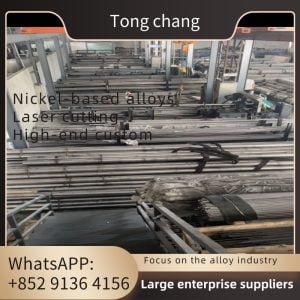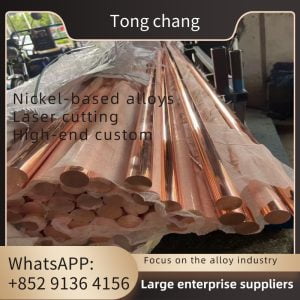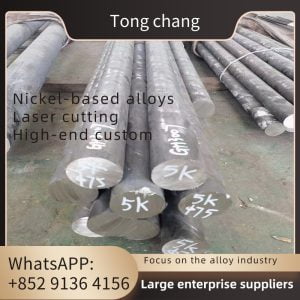| Product Name: | Serrated Fin Tube | Materical: | Any Material Combination That Can Be Arc Welded |
|---|---|---|---|
| Weld Process: | GMAW | Tube Size: | 1.00″ To 12.75″ Outside Diameter |
| Fin Height: | 0.375″ To 1.25″ | Fin Pitch: | 1 To 7 Fins Per Inch |
| Fin Thickness: | 20ga (.035″) To 16ga (.060″) | Fin Segment Width: | 5/32″ Or 5/16″ |
| Application: | Heat Exchanger, Boiler, Natural Gas Treatment, Etc. | ||
| High Light: | Heat Exchanger Serrated Finned Tube, P9 Serrated Finned Tube | ||
Serrated FinTube , ASTM A335 P9 Alloy Steel Pipe with 11Cr Fin for Heat Exchanger
Serrated fin tubes, also known as serrated extended surface tubes, are a type of heat exchanger tubes designed to enhance heat transfer efficiency. They have serrated fins attached to the outer surface of the tube, providing a larger surface area for heat exchange. The serrated fins on these tubes create turbulence in the fluid medium flowing over them, which helps to improve heat transfer. This turbulence disrupts the boundary layer near the tube surface, facilitating better heat transfer between the fluid and the tube. Serrated fins also minimize the risk of fouling and increase the overall heat transfer coefficient.
The material used for serrated fin tubes can vary depending on the specific application requirements, but commonly used materials include carbon steel, stainless steel, copper, and aluminum. The choice of material depends on factors such as temperature, pressure, corrosion resistance, and mechanical strength.
| TONG CHUANG Group's Welded Helical Serrated Finned Tubes | |
| Weld Process | GMAW |
| Tube/Pipe Size | 1.00″ to 12.75″ outside diameter |
| Fin Height | 0.375″ to 1.25″ |
| Fin Segment Width | 5/32″ or 5/16″ |
| Fin Thickness | 20ga (.035″) to 16ga (.060″) |
| Fin Pitch | 1 to 7 fins per inch |
| Materials | Any material combination that can be arc welded |
| Tube Length | No practical limit |
What's the difference between welded solid finned tubes and welded serrated finned tubes?
The main difference between them is in the design of the fins.
1. Welded solid finned tubes have fins that are solid and continuous along the length of the tube. These fins provide a large surface area for heat transfer, which can improve the efficiency of the heat exchanger. However, the solid fins can also create a higher pressure drop compared to serrated fins.
2. welded serrated finned tubes have fins that are serrated or notched along their length. These serrations help to disrupt the boundary layer and improve heat transfer efficiency. Serrated fins can also provide a lower pressure drop compared to solid fins.
The advantages of HFW (High Frequency Welding) Helical Serrated finned tubes include:
Improved heat transfer efficiency: The serrations on the fins help to disrupt the boundary layer and increase turbulence, which improves heat transfer efficiency.
Lower pressure drop: The serrations also reduce the pressure drop across the finned tube, which can result in energy savings and improved system performance.
Durable construction: The HFW welding process creates a strong and durable bond between the fins and the base tube, which can withstand high temperatures and pressures.
Versatility: HFW Helical Serrated finned tubes can be used in a variety of applications, including power generation, chemical processing, and HVAC, due to their high efficiency and durability.
Applications
These finned tubes find application in various industries where efficient heat transfer is crucial, such as in power plants, chemical processing plants, HVAC systems, refrigeration, and many other heat exchanger applications.
1. Heat exchangers units for power plant(electric, nuclear, thermal and geothermal power plants);
2. High corrosive systems (condensers, evaporators, sea water desalinations, fertilizing, urea systems, ammonia, gas, corrosive acids);
3. The petroleum, chemical and petrochemical industries;
4. The food processing and refrigeration industries;
5. Natural gas treatment;








